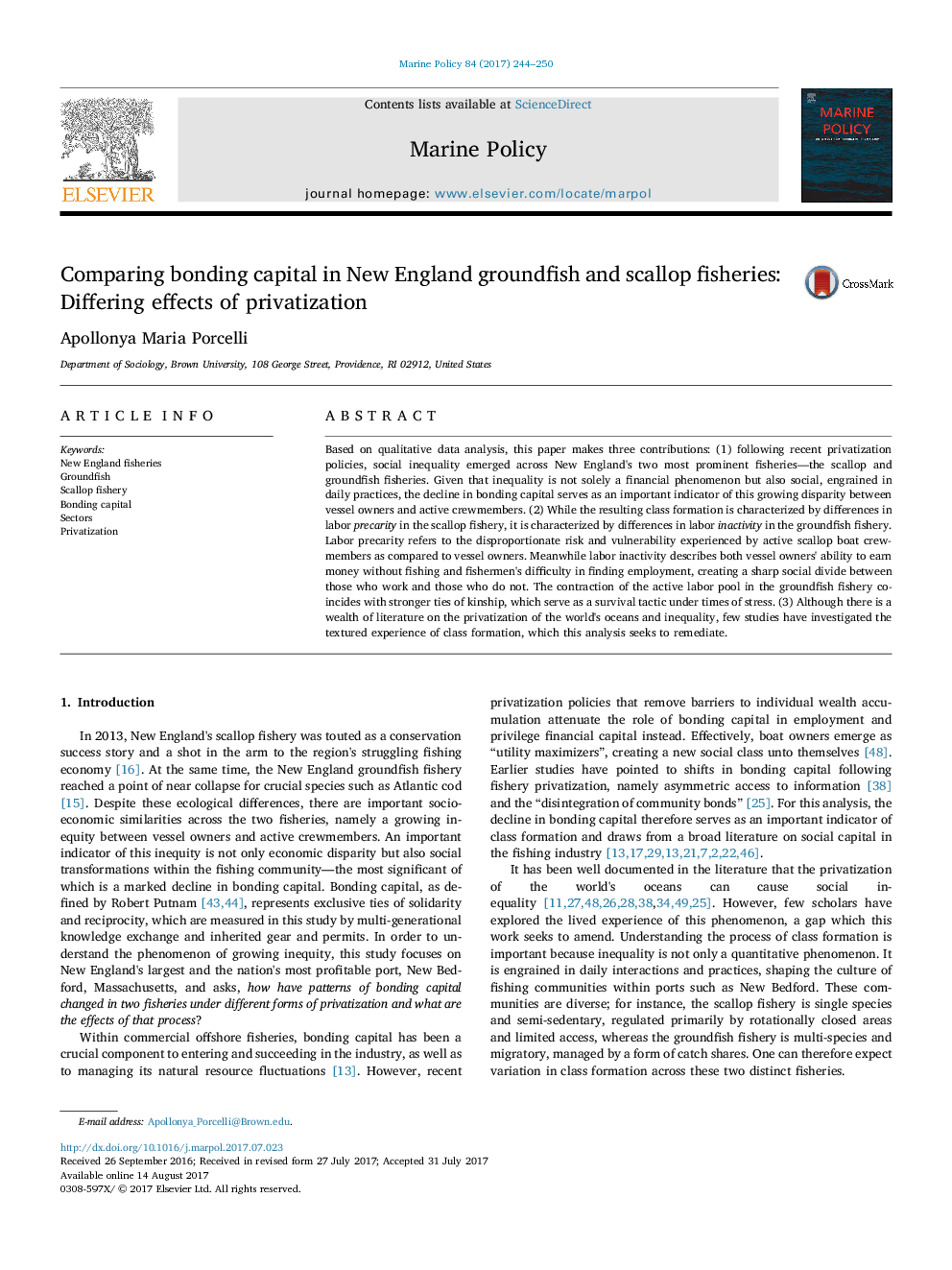ترجمه فارسی عنوان مقاله
مقایسه سرمایه باندینگ در انگلستان و انگلستان: اثرات متفاوتی از خصوصی سازی
عنوان انگلیسی
Comparing bonding capital in New England groundfish and scallop fisheries: Differing effects of privatization
| کد مقاله | سال انتشار | تعداد صفحات مقاله انگلیسی |
|---|---|---|
| 139396 | 2017 | 7 صفحه PDF |
منبع

Publisher : Elsevier - Science Direct (الزویر - ساینس دایرکت)
Journal : Marine Policy, Volume 84, October 2017, Pages 244-250
ترجمه کلمات کلیدی
ماهیگیری نیو انگلند ماهی دریایی، شکارچی ماهیگیری، سرمایه گذاری، بخش ها، خصوصی سازی،
کلمات کلیدی انگلیسی
New England fisheries; Groundfish; Scallop fishery; Bonding capital; Sectors; Privatization;

